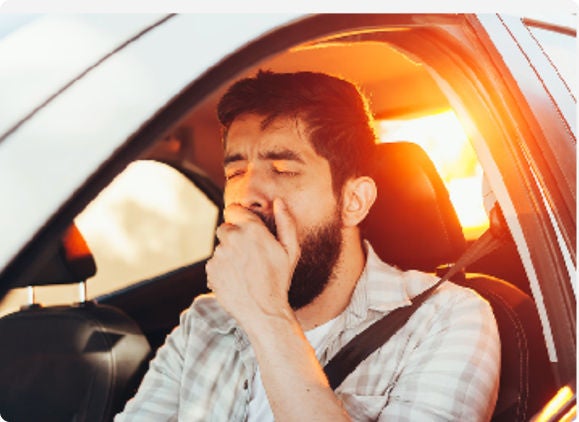


How to Avoid Microsleeps?
Best Practices to Follow and People Most at Risk.
Rest, Health, and Road Safety. How to Avoid Microsleeps?
In our busy days filled with family, social, and work commitments, rest is often considered almost an accessory or a waste of time. A useless moment of life, while in fact, it is the engine that allows us to live every experience in the best possible way. In the last 100 years, humankind has significantly reduced the time dedicated to sleep, with an estimated reduction of about 1.5-2 hours per day per person. That’s a huge amount of time when multiplied by an individual's average lifespan.

Health Consequences
It has been proven that sleeping less increases the risk of cardiovascular and metabolic diseases, such as diabetes and obesity, infectious diseases, anxiety, and depression. Sleeping less than the recommended 7-8 hours for an adult leads to reduced alertness, memory deficits, fatigue, and decreased concentration and attention. All of these conditions impact our daily abilities—at work, in school, and even when driving.
Our mental performance is not constant throughout the day. A decrease in alertness is often noticed in the early afternoon—regardless of what we had for lunch—and especially when we have been awake for more than 16 hours. Naturally, this is made worse if the previous night we did not sleep well, slept less than needed, or had disturbed sleep.

Sleep and Driving Ability
All of this significantly affects our driving abilities. The less we sleep, the greater the risk of accidents. If you sleep only 5 hours, the risk of having an accident doubles, but if you sleep less than 4 hours, the risk increases by an additional 11.5%.
Various studies have shown that sleep deprivation not only reduces your driving performance but also leads you into a state of unawareness where you are more easily exposed to risk. Other studies have highlighted that 4.2% of drivers report having fallen asleep at the wheel in the previous month.
Which Categories Are Most at Risk?

Teenagers and Young Adults

Drivers on Night Shifts or People Driving Especially Between Midnight and 6 a.m.

People with Undiagnosed and Untreated Sleep Disorders (Apnea, Insomnia)

People Taking Medications That May Increase Drowsiness
How to Recognize the Danger
As mentioned earlier, drowsiness not only lowers our alertness but also makes us unaware of the danger. However, there are certain warning signs that can alert you in time that it's time to stop.
-
You start yawning;
-
You struggle to keep your eyes open;
-
Your head tends to droop;
-
You don't clearly remember the last few kilometers driven;
-
You found yourself too close to the car in front of you;
-
You accidentally found yourself in the opposite lane;
-
You missed a road sign.
Better to lose a minute of your life than your life for a minute!
In all these cases, it's wise to consider stopping immediately at a rest area or service station.